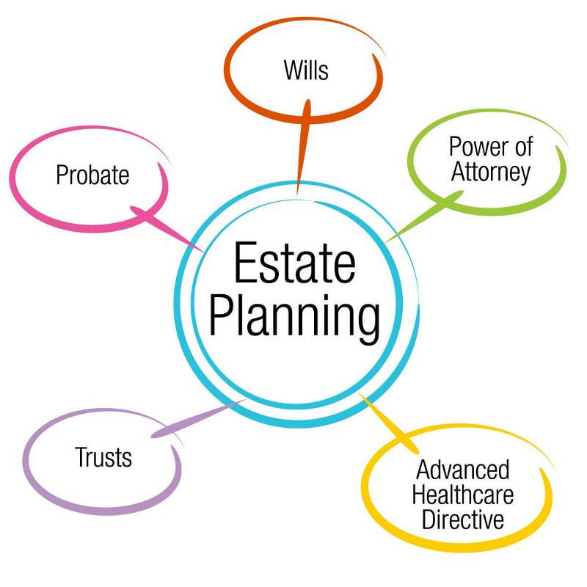You don’t have to be a skilled estate planning lawyer to spot an issue that should be addressed in your estate planning documents. Here are some common areas you can review for potential changes.
No Documents Hopefully none of you are in this situation, but if you are please begin your estate planning soon. Indeed, the pandemic should have taught us all that there’s not always time for estate planning in the future. If you don’t create an estate plan, the state will decide who gets what and the estate taxes may well be higher than necessary.
Significant Life Changes Often there are major life events (marriage, divorce, new child, moving to a new state, etc.), which affect your documents in many ways.
 |
A new child may or may not require updated documents if you already had provided for children in your wills or revocable trusts. If the current documents don’t contemplate additional children, failure to revise them could be a disaster.
A major change in financial position might require new planning documents. For example, one scenario is if your estate was so small at the time of the initial estate planning that it used simple outright bequests instead of trusts for heirs. Meaningful growth in wealth should be accompanied by a new plan and appropriate documents. |
Moving to a new state (change in domicile) requires creating new documents under the new home state law.
Were documents updated after a marriage or a divorce? While that may seem so obvious that it might be hard to forget it happens and it can be a disaster.
Incorrect Beneficiaries Imagine going through the effort of having an estate plan only to accidentally leave assets to an ex-spouse, a deceased person, the trust of a child who is now a capable adult and so forth. This is worth keeping an eye on as the years pass by and situations change.
Aging A younger person might view a living will (statement of healthcare wishes) as more theoretical, and not give it the thought it deserves. That same person two decades later may think much more deeply about the decisions that now feel like they’re approaching more rapidly. Documents should be updated to reflect that evolution.
A younger person might rely on a simple durable power of attorney to address disability. For an older person, a more robust revocable trust may be prudent. A younger person might have a lot of term insurance to protect children. Alternatively, the older person might have a permanent need for life insurance for estate liquidity or asset transfers.
Document Age When legal documents are old, they can be viewed as stale, so third parties like banks may be reluctant to accept them. Also, as documents get old it’s more likely that relevant laws or circumstances have changed. It’s probably good to check documents roughly every 7-10 years.
Major Changes in the Law If the federal estate tax exemption is $11.58 million in 2020 and the exemption drops to $3.5 million in the future, you may need an estate planning checkup.
A new exemption amount is not the only change that could lead you to suggest recommending an estate planning review. Even if an estate is currently valued at less than the new exemption amount, inflation or investment growth can increase an estate’s value. Also, The SECURE Act was enacted at the end of 2019. Among other things, it eliminated the Stretch IRA which allowed beneficiaries to withdraw funds over their expected lifetime. Now, most beneficiaries must withdraw these funds within ten years. Yet many people haven’t considered whether the beneficiary designations for their retirement plans should change.
Organization and Coordination The world’s greatest trust document may not mean much if the assets you think are in the trust were never properly transferred to the trust.
Many times, there are loans between family members, family trusts or entities. Have those loans been corroborated with a written signed note agreement and has interest been paid regularly? Does your CPA or financial planner have copies of your estate documents in their permanent file?
Overall, there are numerous vital issues to understand regarding estate planning documents and plans. But be careful of overlooking something. Be certain to collaborate with all of your advisors to avoid the risk of missing a key issue, or misunderstanding a nuance of the planning.
Other Documents Often, beneficiaries are named outside of your will. This can include life insurance, home ownership, investment accounts and so forth. It’s easy to overlook such items when creating an estate plan, but really they are a very important part of the overall plan.
Incorrect Representatives The best estate planning can go off the rails if you haven’t selected the right representatives. While you’re still alive, the key representatives include the person who handles medical decisions when you can’t and the person who handles your financial matters when you can’t. After your death, the key person is the executor. They will administer your estate — including the payment of final expenses and taxes, asset distribution and so forth. If you have an existing estate plan, the representatives you initially named may no longer be suitable. Professionals who you named (CPA, attorney, etc.) may have retired or even died. Perhaps your children are now adults and you can ask them to assume some of these roles. So, it’s apparent that this is a crucial aspect of your estate plan.
If you’d like to sit down and talk about your estate, or any other financial matter, we can discuss this in a no-charge, no-obligation initial meeting. Please visit our website or give us a call at 970.419.8212 to set up an in-person or virtual meeting.
This article is for informational purposes only. This website does not provide tax or investment advice, nor is it an offer or solicitation of any kind to buy or sell any investment products. Please consult your tax or investment advisor for specific advice.

